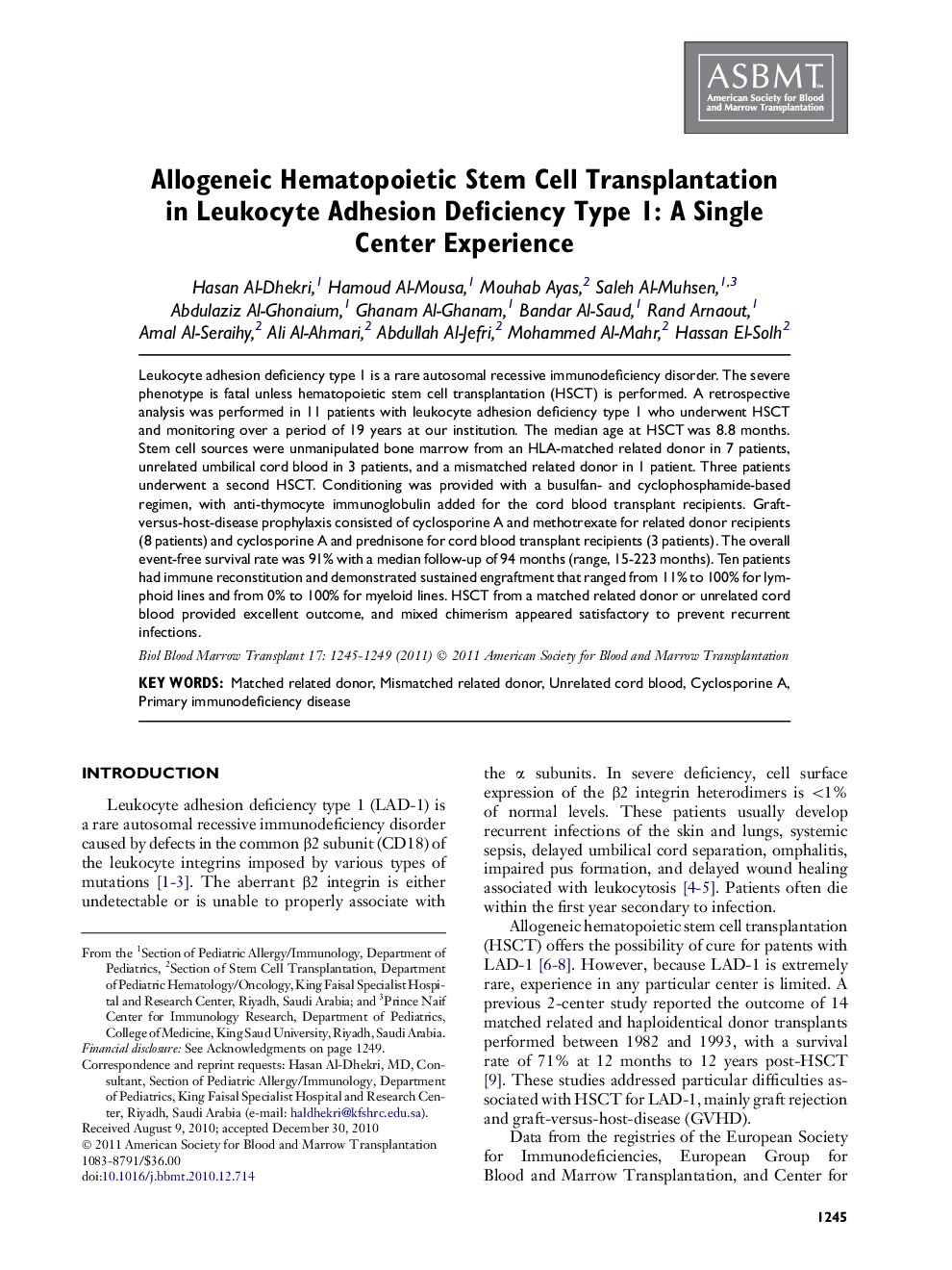| Article ID | Journal | Published Year | Pages | File Type |
|---|---|---|---|---|
| 2103917 | Biology of Blood and Marrow Transplantation | 2011 | 5 Pages |
Leukocyte adhesion deficiency type 1 is a rare autosomal recessive immunodeficiency disorder. The severe phenotype is fatal unless hematopoietic stem cell transplantation (HSCT) is performed. A retrospective analysis was performed in 11 patients with leukocyte adhesion deficiency type 1 who underwent HSCT and monitoring over a period of 19 years at our institution. The median age at HSCT was 8.8 months. Stem cell sources were unmanipulated bone marrow from an HLA-matched related donor in 7 patients, unrelated umbilical cord blood in 3 patients, and a mismatched related donor in 1 patient. Three patients underwent a second HSCT. Conditioning was provided with a busulfan- and cyclophosphamide-based regimen, with anti-thymocyte immunoglobulin added for the cord blood transplant recipients. Graft-versus-host-disease prophylaxis consisted of cyclosporine A and methotrexate for related donor recipients (8 patients) and cyclosporine A and prednisone for cord blood transplant recipients (3 patients). The overall event-free survival rate was 91% with a median follow-up of 94 months (range, 15-223 months). Ten patients had immune reconstitution and demonstrated sustained engraftment that ranged from 11% to 100% for lymphoid lines and from 0% to 100% for myeloid lines. HSCT from a matched related donor or unrelated cord blood provided excellent outcome, and mixed chimerism appeared satisfactory to prevent recurrent infections.
